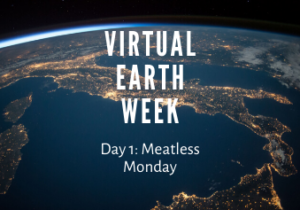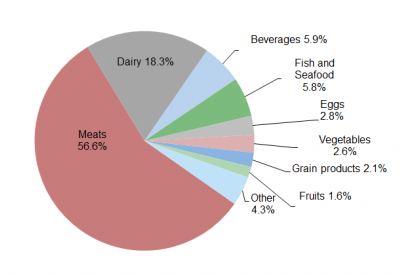Virtual Earth Week, Part 1: Meatless Monday

For the 50th anniversary of Earth Day, we have put together a 5-part blog series, releasing a new post each day of Earth Week. DNDA is also launching a new video series about environmentally friendly cooking on our YouTube channel on Tuesday, April 21st, and we will be drawing a winner from our Earth Day giveaway on Friday, April 24th. Stay safe, stay healthy, and join us in celebrating Earth Week from home!
How Eating Less Meat Can Help the Environment
How big of an impact can one person really make? This is a frequent question that arises in the environmental realm. In fact, the impacts from one person making small sustained lifestyle changes can be quite significant! One lifestyle change that can be very impactful is refraining from eating meat, even for one day per week. Doing so can have a huge environmental impact over time as well as potentially improving one’s own health. Cutting meat consumption has been shown to reduce risk of heart disease, obesity, cancer, diabetes, and many other health problems.
Animal agriculture is one of the biggest contributors to climate change. One pound of beef can take up to 1,700 gallons of water to produce, compared to an average of 39 gallons for one pound of vegetables.
The cattle industry is also one of the largest producers of methane, a potent greenhouse gas. It’s estimated that methane has a global warming potential that is 25 times greater than carbon dioxide. Methane naturally occurs in bovine digestion and is expelled in the form of manure or gas. Researchers have shown food consumption represents as much as 30 percent of all greenhouse emissions including carbon dioxide, nitrous oxide, and methane. The graph below was produced by the University of Michigan to depict the share of greenhouse gasses produced per the average American diet.
The typical American eats close to double the global average for meat consumption, at about 222 pounds per year, a little over a half-pound per day, so eliminating meat one day per week saves on average 31 pounds of meat each year. In one year, this would save as much as 52,700 gallons of water in meat production. This amount of water alone is more than the average American will use in their home in an entire year. Reducing our meat consumption would dramatically curb national greenhouse gas emissions, water use, and land use.



